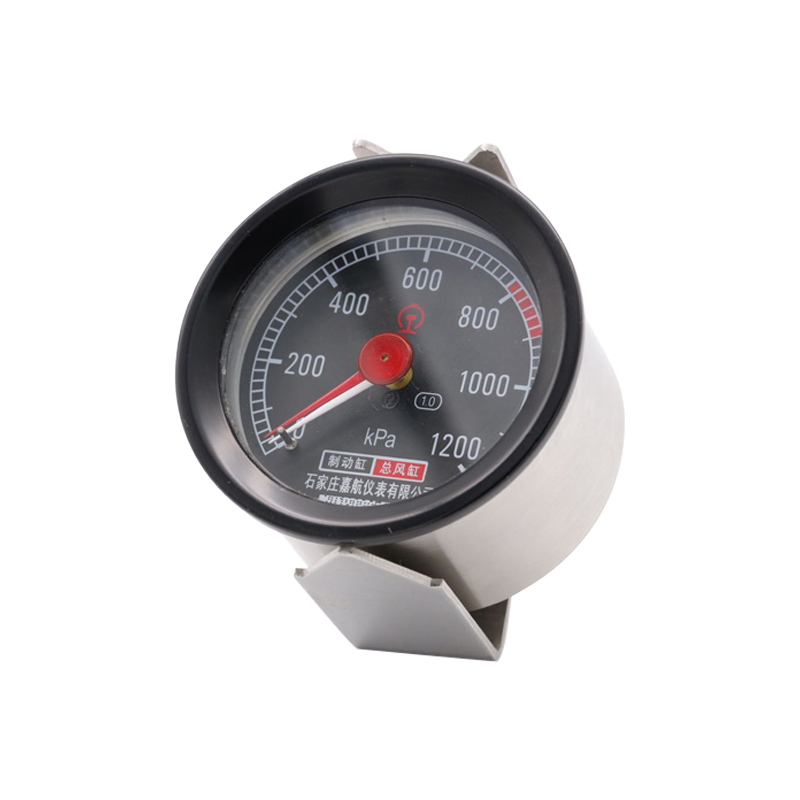
Nov . 14, 2024 05:11 Back to list
differential pressure gauge accuracy jah
Understanding Differential Pressure Gauge Accuracy A Comprehensive Overview
Differential pressure gauges play a crucial role in various industries, including oil and gas, chemical processing, and HVAC systems. These instruments are designed to measure the difference in pressure between two points in a system, providing valuable insights into process performance and safety. However, the accuracy of differential pressure gauges is paramount for reliable readings and proper system functioning. This article explores the factors affecting the accuracy of these gauges, their applications, and best practices for ensuring optimal performance.
What is a Differential Pressure Gauge?
A differential pressure gauge is an instrument that measures the pressure difference between two points, enabling operators to assess the performance of equipment such as pumps, filters, and heat exchangers. The readings obtained from these gauges are essential for process control, ensuring that systems operate within specified parameters. Accurate readings help detect issues like blockages or leaks, contributing to equipment longevity and safety.
Factors Affecting Accuracy
The accuracy of differential pressure gauges is influenced by several factors
1. Calibration
Calibration is critical to maintaining the accuracy of a differential pressure gauge. Over time and with use, the calibration of the instrument can drift, leading to erroneous readings. Regular calibration, following the manufacturer’s specifications, ensures that the gauge remains accurate and reliable. It is recommended to calibrate differential pressure gauges at least annually, or more often in critical applications.
2. Temperature Fluctuations
Temperature changes can significantly impact the accuracy of differential pressure measurements. Most gauges have a specified operating temperature range, and deviations outside this range may lead to measurement errors. It is essential to select gauges that can operate effectively under the expected temperature conditions. Additionally, temperature compensation features in some gauges can help mitigate these effects.
3. Installation Practices
Improper installation can lead to inaccurate readings in differential pressure gauges. Factors such as pipe alignment, orientation, and mounting position can affect how pressure is transmitted to the gauge. For accurate measurements, it is vital to follow installation guidelines provided by the manufacturer, including ensuring proper location and access for maintenance.
The properties of the fluid or gas being measured can also impact gauge accuracy. For instance, the presence of particulates, viscosity, or corrosive agents can complicate pressure measurements. Selecting a gauge compatible with the medium is essential for reliable readings. It is also advisable to implement filtration systems or use gauges that can handle challenging conditions.
differential pressure gauge accuracy jah

Applications of Differential Pressure Gauges
Differential pressure gauges find applications across various industries
- Oil and Gas In this sector, these gauges are used to monitor pressure across separators, filters, and piping systems, ensuring optimal flow rates and preventing equipment failures.
- Chemical Processing Differential pressure readings are essential for maintaining reaction conditions, monitoring flow through reactors, and ensuring safe operations.
- HVAC In heating, ventilation, and air conditioning systems, these gauges help assess filter conditions and airflow rates, enabling efficient operation and energy savings.
Best Practices for Ensuring Accuracy
To maintain the accuracy of differential pressure gauges, several best practices can be implemented
- Regular Maintenance Routine inspections and maintenance can identify any potential issues that may affect gauge performance. This includes checking for leaks, corrosion, and physical damage.
- Training Personnel should be adequately trained in the use and maintenance of differential pressure gauges. Understanding how to interpret readings correctly can prevent misjudgment of system conditions.
- Documentation Keeping detailed records of calibration, maintenance activities, and any observed issues can help in identifying patterns and preventing future inaccuracies.
- Selecting the Right Gauge Choosing the appropriate gauge for the specific application is crucial. Consider factors such as pressure range, temperature tolerance, and compatibility with the measured medium to ensure accurate results.
Conclusion
The accuracy of differential pressure gauges is vital for the effective operation of various industrial processes. By understanding the factors that influence accuracy and implementing best practices, industries can ensure reliable measurements that contribute to safety and efficiency. As technology advances, newer types of differential pressure gauges with enhanced features continue to emerge, promising improved accuracy and ease of use in a variety of applications.
-
Top Diaphragm Seal Pressure Gauge Suppliers Precision & Durability
NewsMay.29,2025
-
Ashcroft Diaphragm Pressure Gauges High Accuracy & Durable Design
NewsMay.29,2025
-
WIKA Diaphragm Seal Pressure Gauges Corrosion-Resistant & Durable
NewsMay.29,2025
-
Precision Differential Pressure Gauge Assembly Reliable & Customizable Solutions
NewsMay.29,2025
-
WIKA Sanitary Diaphragm Pressure Gauge High Precision & Durability
NewsMay.29,2025
-
HD Fire Pressure Gauges High Accuracy & Durable Solutions
NewsMay.28,2025
